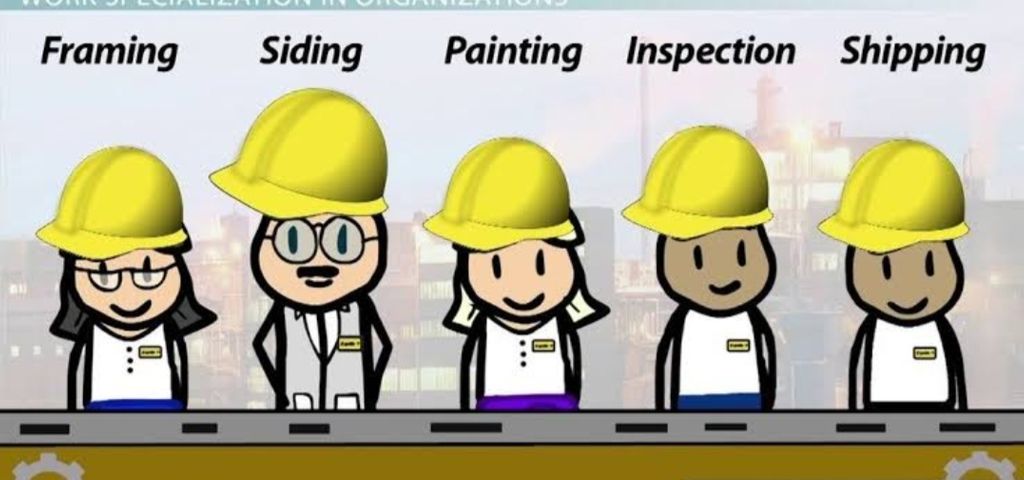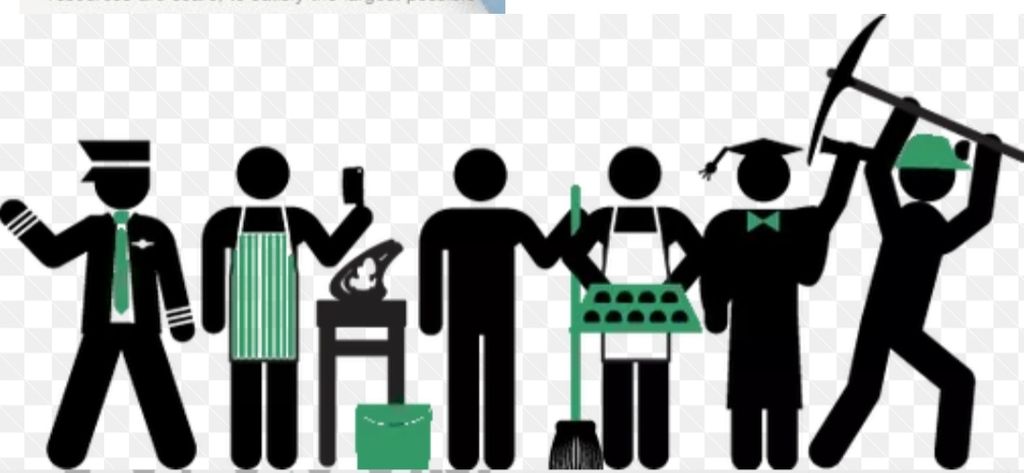Does Division Of Labour Work?
Jun 05, 2019 • 112 views
Division of labour

Plato wrote in his book "The Republic" on the Division of Labour. He said, "Human society is formed on natural inequalities . This natural inequality is based on division of labour " . A society's need is fulfilled by different divisions of people. For example , the food is produced by farmers, cloth by weavers, and dresses are produced by tailors. The division of labour leads to organic merger of various sections of society. The division of labour is necessary to fulfill the needs of social, economic and political needs of the society. But, there should be no exploitation in this process.
While discussing on the 'Division of Labour' Karl Marx says, "Division of Labour creates less skilled workers ". He classifies division of labour into two different divisions of economic labour and social labour. He opnies that the Division of Economic labour goes with the technical and people's cooperation. The Division of social labour achieves social control through class, status and stratification.
A different division of labour can be seen in a post industriliazed society than industrialized society. In the present digital world, the division of labour is done through computers. For example in the information technological society, the division is based on various skills in using the computers. As we consult different doctors for different ailments, the computer technicians are consulted for various aspects of information technology related issues.
Like these 'Specialization' creates division of labour. Here specialization means having deeper knowledge and in depth skill in one particular field.
Division of labour has helped people to gain skill in a field and earn economic benefits in accordance to their skills. Due to economic interest and division of labour class system emerged. Since, division of labour found wide spread accessibility, buisness and industrialization emerged. As a result, few people could invest more and earn more profit.
Inequality in employment or labour
Labour means earning in cash or kind by providing one's manual or intellectual labour. Is an important aspect of human society. Labour also means a function done in order to achieve something. If a result is available for a person either in cash or kind due to one's physical work, then it is called Labour.
With the emergence of stratified division of labour, inequality starts in the society. Hence, in the Indian context, labour has not remained a mere economic activity. It has become part of social structure with inequalities. The labour in India has been mixed with gender, caste, region and religion. This has resulted in various forms of inequalities. In Indian society, if a person moves upwards with his status and role, his power and income also rises.
Any labour that goes against dictum ' equal labour equal pay' can be termed as inequality in labour. If differential payment is given for two people who put the same amount of time and efforts, then it is called as Discrimination. Through women and men engage similar work, their compensations are not the same. In India men are paid more for their work than women.

